Respecting boundaries: Gender Separation in the Islamic Paradigm

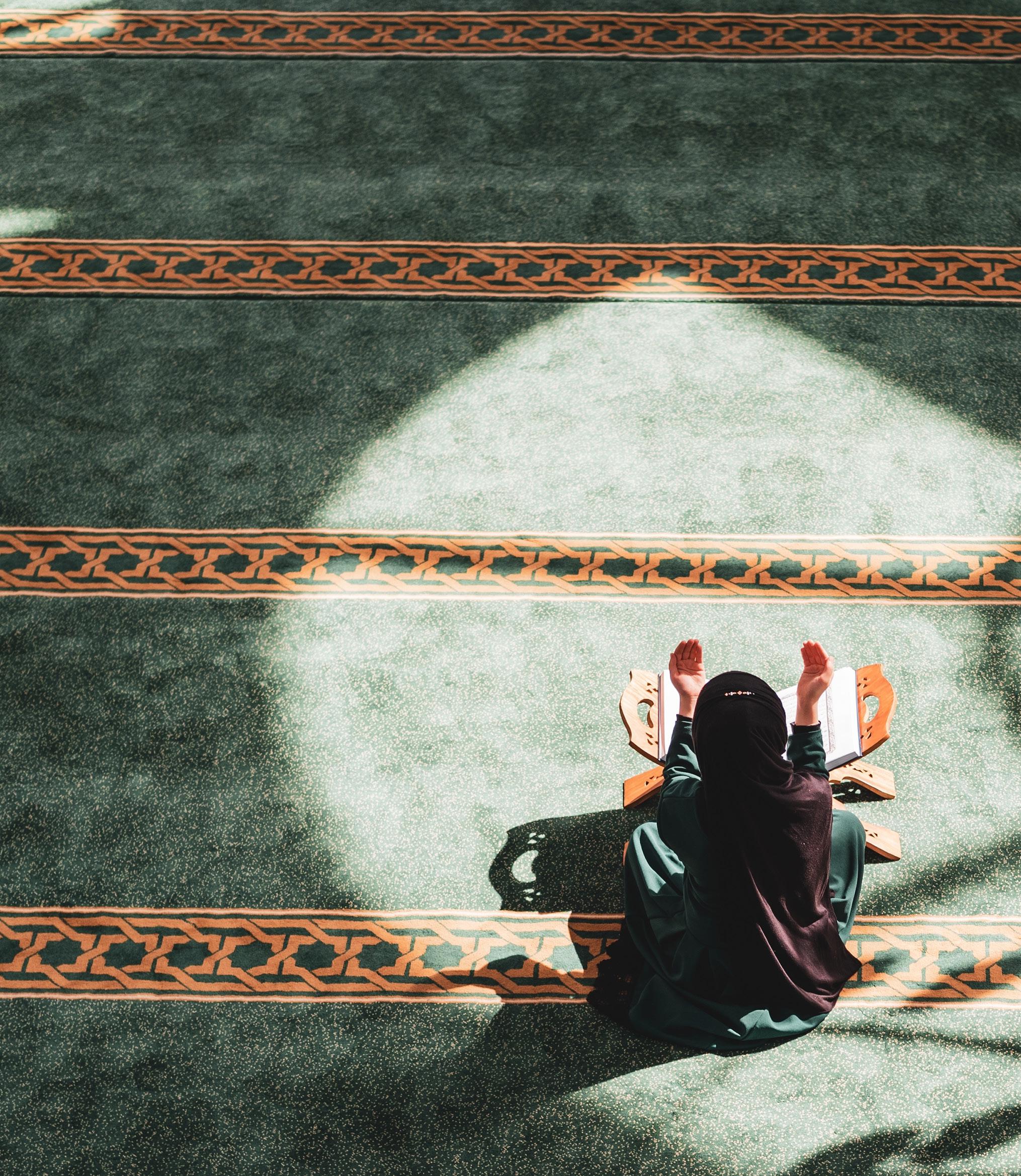
mar/apr ‘24 volume 2 issue 8 INSIGHT Official Magazine of Darul Uloom CANADA


about the cover
Allah looks for quality, not quantity. We are 1.6 billion believers today, but we help lessly watch the depredation going on in Gaza. The Sahaba’s numbers were paltry in comparison, but we also know their great accomplishments in deen.
Ramadan is the time to build a quality relationship with Allah. Remember, to de vote all free time in His remembrance and make as much du’a for our blessed Umma. We need it more than ever today.
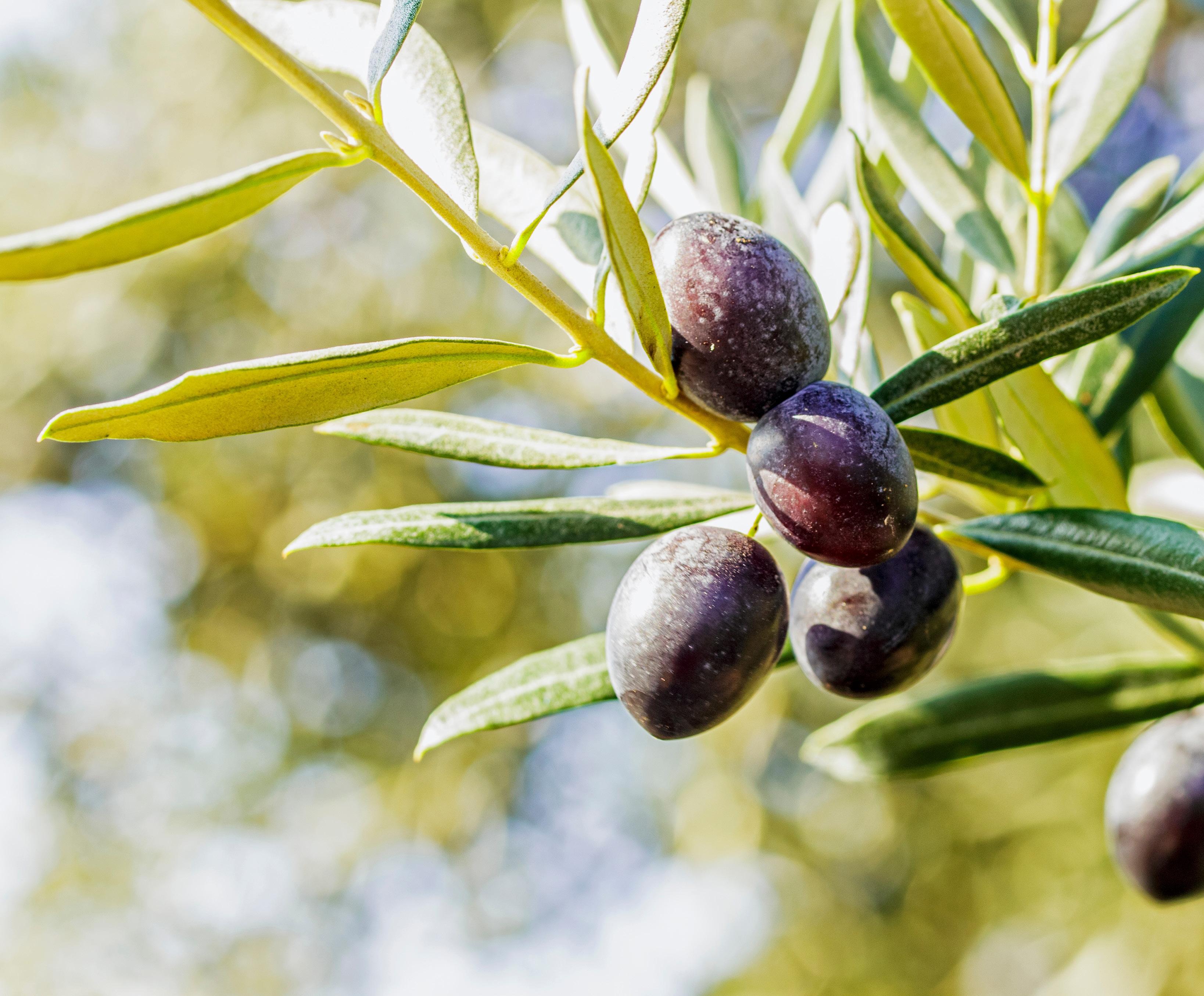

22



28 06 learnArabic MyopiniongenderseparationintheIslamicparadigm 12 22 16 28 Propheticmedicinesafarmeans‘ajourney’butitalso reveals Liberationof Jerusalem
FatawaCanwomenleadtarawihprayer 34 CONTENTS
Prophesy
Neverstopcomplaining
Du’a
Medicine
Prophetic medicine
Knowledge is, indeed, a double-edged sword. It can defend and uphold what is wrong, or, promote and protect what is good. How it is used depends largely on the wielder of the sword. A mudahin, for example, is described as an opportunist who cheerfully puts the deen on the altar to please others. His sword whacks at the roots of deen and cuts down Sunna and hadith, while the muqawim billah is one who seeks to uphold the deen and cares not for the ‘reproach of any critic.’ His sword works relentlessly to safeguard the deen when the mudahin, ‘the exemplar of the times’ (al-Mustadrak: 3/386), is waging a decisive war to ‘reform’ the faith in pursuit of ‘the good of society.’
Maulana Dr. Mateen Khan’s article Respecting Boundaries exemplifies the muqawim billah defending the deen against the often pernicious and unorthodox arguments raised on the thorny matter of gender separation. For anyone of sound mind and heart, it is not terribly difficult to understand why the Quran and Sunna call for separation of genders considering the increasing objectification of the modern woman in our times that is sustained by a skewered definition of equality. This article represents the clear message of the Qur’an and Sunna on the matter of gender separation.
Prophetic medicine by M. Waseem Baara highlights the nutritional benefits of Sunna foods whose nutrional values accentuate their temporal benefits while their status as Sunna their spiritual and everlasting benefits.
Patron
Hazrat Dr. Ismail Memon
Fatawa
Mufti Husain Ahmad Badri Contributors
Mufti Omar Baig
Maulana Dr. Mateen Khan
Mufti Yusuf Ahad
M. Waseem Baara
Dr. Kamran Karatela
M. Zubair Ahmad
M. Ahmad Amin
Editor
Asim Ahmad Contributions
Photo by Valeria Boltneva: https://www.pexels.com/photo/dates-in-close-up-15913411/
Photo by Alex Falconer: https://www.pexels. com/photo/close-up-shot-of-clear-jar-withhoney-8500508/
Tanvir Anjum Adib, CC BY-SA 4.0 <https:// creativecommons.org/licenses/by-sa/4.0>, via Wikimedia Commons
CC BY-SA 3.0 <https://creativecommons.org/ licenses/by-sa/3.0>, via Wikimedia Commons
Photo by form PxHere
“Mosque - Kingsland Road” by Alan Denney is licensed under CC BY-NC-SA 2.0.
“’Only For Women’” by quinn.anya is licensed under CC BY-SA 2.0.
“Women Only by Hada Litim” by Map of the Urban Linguistic Landscape is licensed under CC BY 2.0.
“Gender segregated prayer rooms” by Tim Sheerman-Chase is licensed under CC BY 2.0.
Photo by Avesta Rezaeizadeh on Unsplash
“Dome of the Rock. Old City, Jerusalem” by babasteve is licensed under CC BY-NC 2.0.
4 INSIGHT MAGAZINE
EDITORIAL
Respecting boundaries
NEVER STOP COMPLAINING

P rophetic Medicine
by M. Muhammad Waseem Arora
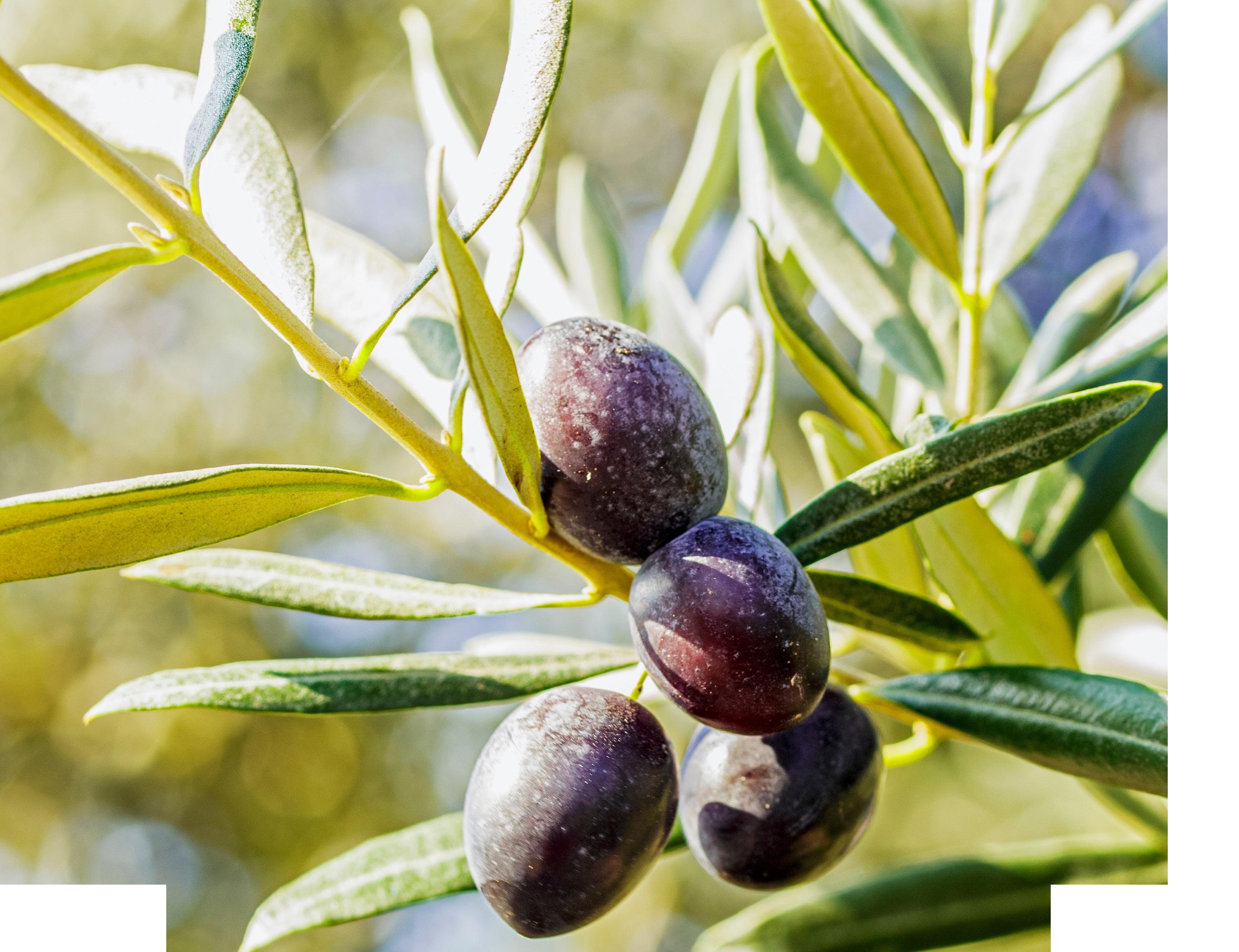
Islam is a deen, or way of life, that focuses on improving every aspect of human life. Where our faith teaches spiritual upliftment, it has also laid great emphasis on mental and physical health. The Prophet a taught us how a believer can achieve mental, spiritual and physical well-being by following the principles of health and hygiene and said, “Purification is the half of faith.”.
The Prophetic way of medicine constitutes all the traditions (hadith) of the Prophet a that teach us the rulings of taharah (cleanliness) and food and proper treatment for different ailments. It teaches about spiritual purity, the continued on p. 8
etiquettes of medicine, the effects of haram and halal on the spiritual and physical health, about treatment and visiting the sick. Some of these traditions came in the form of revelations while others through experience.
Like all other branches of Islamic studies, Prophetic medicine is also a vast
This article provides a brief introduction into prophetic medicine without going into much details.
Prophetic medicine can broadly be catego-
1. Preventive treatment
2. Procedural treatment
3. Spiritual treatment
Preventive medicine is avoiding what is bad for you. One of the golden rules of prophetic medicine is to adopt good habits and measures and avoid such habits that diminish good health. Preventive medicine is based on hygiene and proper diet.
For example, the Prophet a commanded us to wash our hands before and after eating, to eat moderately, and to not overfill the stomach. Procedural treatment is using food, medication and medical procedures for treatment
6 INSIGHT MAGAZINE
Signs of love
The ulama say that there are many signs that indicate love for the Prophet a . Qazi Ayyad says that whoever loves something, he prefers it over everything else; this is the meaning of love, otherwise, it is only a claim of love and nothing else. Verily, the greatest sign of love for the Prophet a is adherence to him, adopting his way, and following his words and actions, and submitting to his orders and abstaining from that which he has forbidden. He should and must follow him in happiness, grief, poverty and prosperity and in every other state. se he had no desire and he never listened with the intention to practice, while the Sahaba reached the highest ranks because they did.
Nothing is more effective than du’a
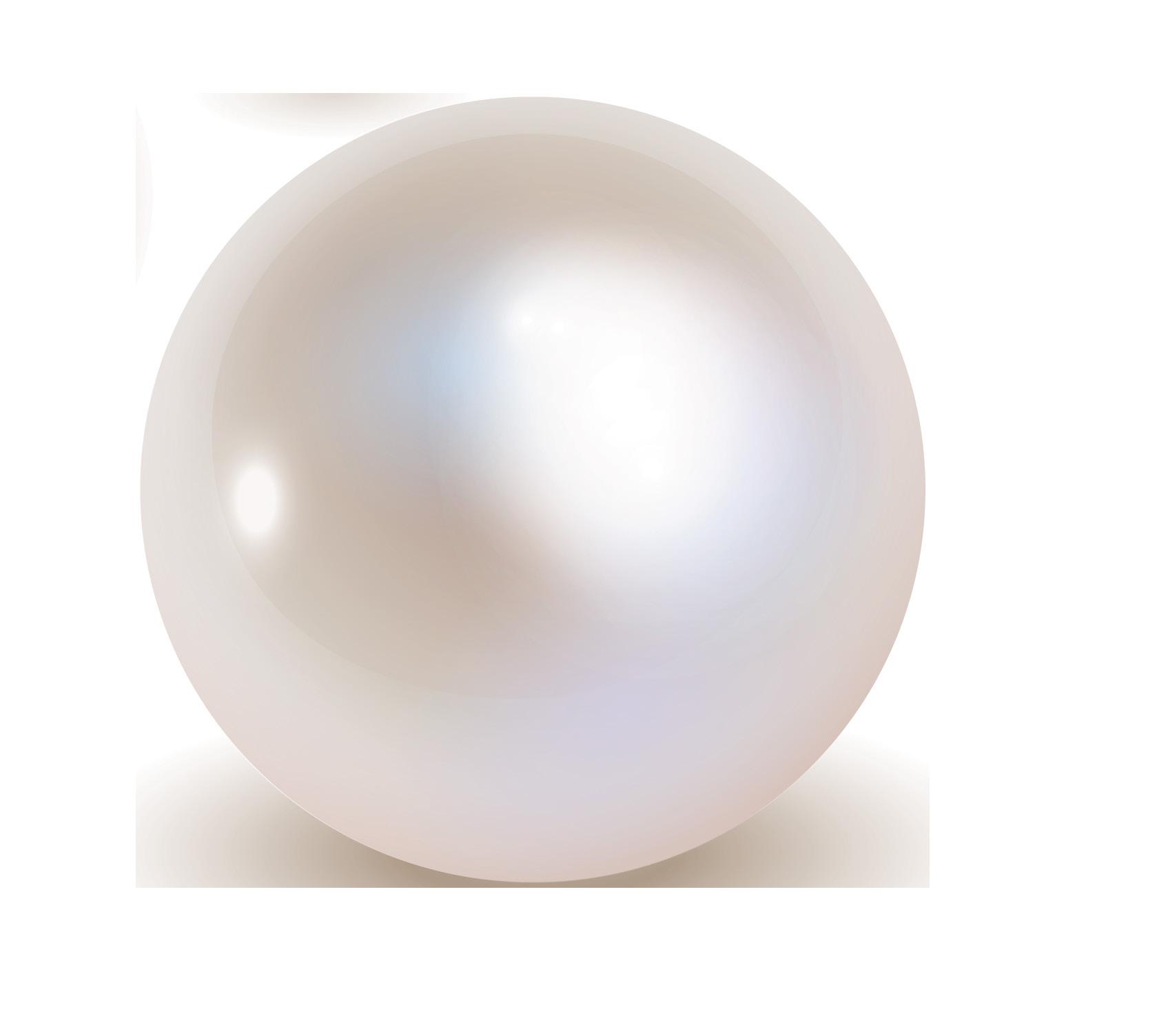
In a letter, someone wrote, “I am in debt.Send me an effective prescription I can read that will relieve me of my debt.”
I wrote back that there is nothing more effective than du’a. People have stopped asking from Allah; our connection with Him has gone weak and our beliefs corrupted. But the bigger issue is that if any ayat prescription doesn’t do the job, than they start assuming bad things about the book of Allah itself. This is all happening because of these amils who prescribe amulets and ayat prescriptions for just about everything.
Arrogance means of deprivation
These literalists are deprived of such great blessings and are completely unaware of the beauty and reality of this Path (of the spiritual dimension). The main reason for their deprivation is nothing more than arrogance, a venom for the soul. Every one of them thinks himself a mutjahid , a thought that is born out of their arrogance. Once, a friend told me that a literalist once was leading salat. He kept swaying right and left and then back again. When he completed his salat, a man who had studied some deen asked him, “What is this swaying in salat?” He replied, “It is in the hadith.” The man said, “I have never come across such a hadith.” The literalist left and returned a little later with a book of translated hadith in his hand. The hadith in it said, idha amma ahadukum fa al-yukhaffif
but the translation read it as follows: when you pray salat, then make it light. The literalist took the translation ‘then make it light’ to mean ‘to shake’ because he thought it said [in Urdu] hilki [move about] when it actually read as halki [to make light of]. This is the height of their ijtihad.
The literalists
These literalists are spiritually sick with su’ al-zann (bad assumptions) about everyone and think that everyone oppose the hadith; only they are true adherents of the hadith. I saw their reality in a dream once when I was still a student. Though a dream is no proof in the Shari’ah, but it is among the mubashshirat (giver of glad tidings) as long as it does not contradict the deen. I saw that there is a huge congregation of people in Maulana Nadheer Hussayn’s house (elder of the literalists in Indopak). Froth is being distributed to everyone in the gathering. Someone offered me some but I refused to take it. Now, the hadith interpret seeing milk in a dream as knowledge and deen. These people, their manhaj takes on the appearance of deen, but without a soul it is just like butter that is extracted from the froth, which looks like milk, though it is not.
Minor and major sin
Someone wrote: I think to myself that what sin have I committed that I am plagued by hardships. I replied to him that when you were living well you never thought that what good deed am I doing that I am living such a good life. You thought all your good deeds are accepted and are the cause of this good life, but it never crossed your mind tto specify which of the good deeds could possibly be the cause of this good life. You try to figure out which of the bad deeds is causing such a miserable state.
People pay no attention to the minor sins because they don’t understand that minor sins are only minor in comparison to major sins, but in themselves, they are major sins.
- Malfuzat of Hazrat Thanawi; v. 1
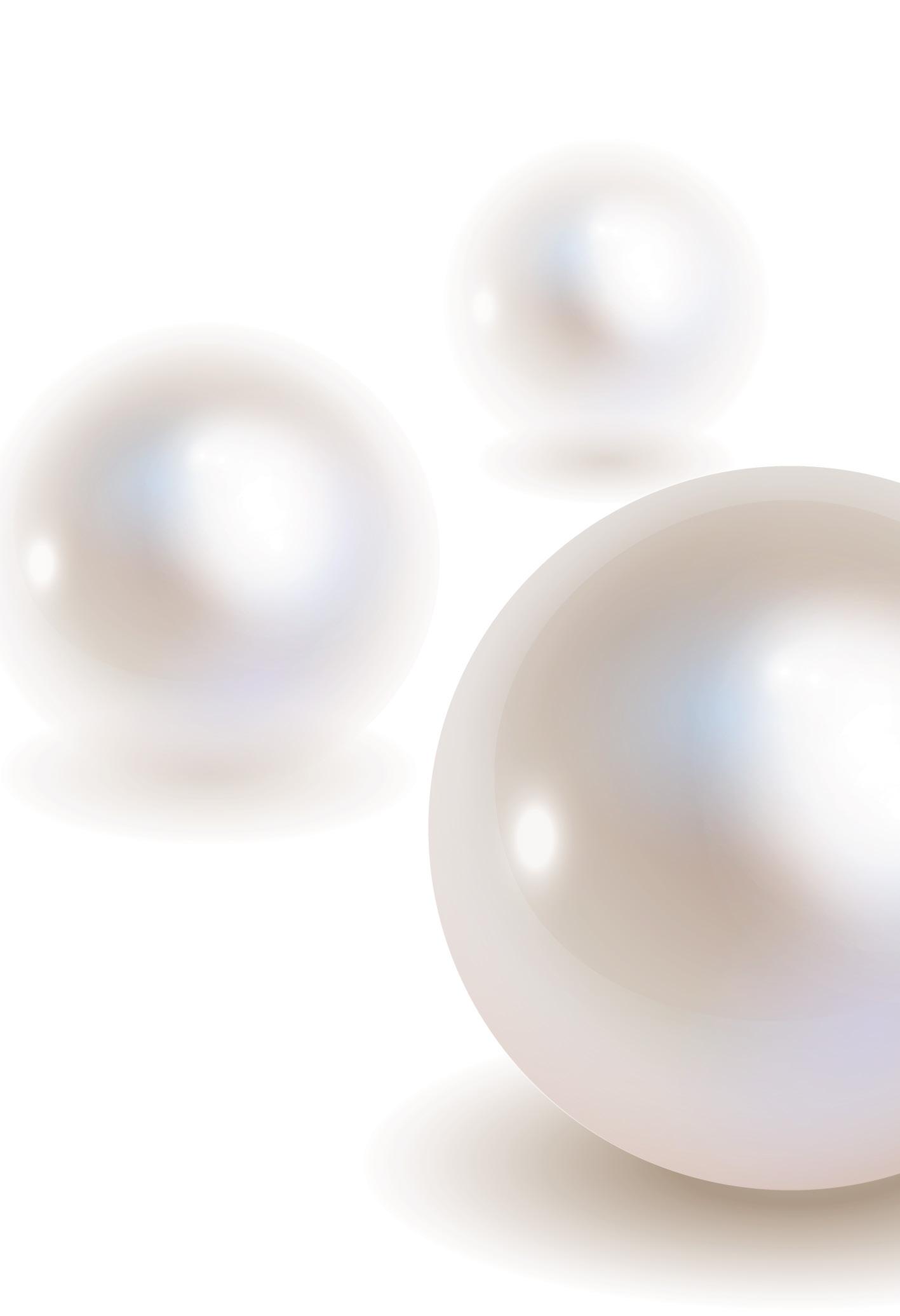
OUR AKABIR
The Prophet a said,” Allah has not sent down any diseases but He has also sent a cure for it”
This hadith gives glad tidings that there is a cure for every sickness and that if we look hard enough, we can find the cure for every illness. With the latest advancements in science, we now have found cures for many diseases that were previously considered untreatable.
It is important to note that taking medicine
Dates
Fruit of the date palm also known as the fruit of the Prophet a is a staple in most Muslim households and is an important fruit for Muslims all over the world. But do you know the importance of eating dates in Islam?
Dates or the date-palm is mentioned in the Qur’an 22 times, more than any other fruit tree, so we know its significance is deeply rooted in our faith. The Prophet a said, “He who eats seven Ajwa dates every morning,
By the fig and the olive, and (by) Mount of Sinai, and (by) this secure city (Makkah), We have indeed created man in the best of molds (95:14)
is not against reliance in Allah. There are many instances in the hadith of the Sahaba l taking medicine or using procedures like cupping for treatment of their illnesses.
Below are a few items mentioned in the Qur’an and hadith, and even the previous scriptures in some cases, that protect against many illnesses.

will not be affected by poison or magic on the day he eats them” [Bukhari]. In another hadith, “Indeed in dates there is a cure” [Muslim]
Dates are filled with many vitamins and minerals that can keep us healthy. Rich in fiber, antioxidants and cholesterol free, these sweet fruits can boost your immune system and aid in protecting your body. Dates contain:
• A strong source of protein
• Fiber, which helps lower the risk of heart disease and prevents constipation
• Vitamins such as B1, B2, B3, B5, A, C, K and D
• Selenium, manganese, copper and magnesium, which are good for bone health
• Potassium, which helps support the nervous system
• Fluorine, which helps fight tooth decay
• Iron, which helps with anaemia
• Natural sugars
So you can see why dates are a sunna of
8 INSIGHT MAGAZINE
Tibb al-Nabawi

the Prophet a. The Qur’an also tells us how eating dates can help during pregnancy and birth. In Surah Maryam (19), Maryam experienced labor pains during her pregnancy with Isa e, so Allah instructed her to eat dates to ease her discomfort.
“The pains of labor drove her to the trunk of a date-palm. She [Maryam] said, “Oh if only I had died before this time and was something discarded and forgotten!” A voice called out to her from under her, “Do not grieve! Your Lord has placed a small stream at your feet. Shake the trunk of the palm towards you and fresh, ripe dates will drop down onto you. Eat and drink and delight your eyes” [19:23].
This ayah proves that eating dates during pregnancy can help ease labor pains and help promote a healthy delivery for the baby. But there are other benefits:
• Folate found in dates can help fetal spinal cord development,
• Magnesium can help sooth cramps and muscle spasms during pregnancy,
• Vitamin K can promote good bone health
• potassium can help regulate blood pressure.
An article published by the Journal of Obstetrics and Gynecology, confirms the benefits of eating dates in the later stages of pregnancy, stating that the consumption of dates “has been shown to positively affect the outcome of labor and delivery without adverse effect on the mother and child.”
Olives:
Olives and olive oil are mentioned in the
9 INSIGHT MAGAZINE
Qur’an 7 times and Allah even swears by the olive on one occased in the hadith numerous time. The olive tree is a blessed tree– it is a gift from heaven (Jannah)-- and so is its fruit. It can live for more tha thousand years.
Olives too like dates are of utmost importance in Islam. Apart from it being a good source of nutrition and a health food, it is also used in ruqyah (spiritual) treatment.
The Prophet a said, “Eat olive oil and use it on your hair and skin, for it comes from a blessed tree (Tirmidhi 1775)
He also said:
“Take oil of the olive and massage with it – it is a blessed tree.”
Here are some of the health benefits associated with the olive:
• Cardiovascular Benefits (Improves Heart Health, eliminates excess cholesterol and controls Blood Pressure)
• Weight Loss
• Cancer Prevention
• Decreasing Pain
• Improves Skin
• Improves Hair Health
• Reduces Allergies
• Digestive Tract Health
• Good Source of Iron
• Improve Eye Health
• Increase Glutathione levels (helps detoxify chemicals in your body)
• Great source of Vitamin E
• Boosts Bone Health
• Fights Inflammation
• Helps prevent blood clots (which can lead to a myocardial infarction or deep vein thrombosis (DVT))
Honey:
Honey is a sweet liquid produced by the honey bees from the nectar of flowers. It’s color

continued on p. 14
The Simple Seerah
Author: Asim Khan & Toyris Miah
Volumes: two
In our times, it is crucial to have accessible resources that shed light upon the life of the Prophet a in the English language. As someone constantly on the lookout for English material on the seerah, I’ve encountered a plethora of works ranging from awkwardly translated texts to original compositions that capture the essence but hardly the eloquence. There was a need for good seerah books in simple English for the general Muslim public. Asim Khan and Toyris Miah’s The Simple Seerah provides just that, bringing to life the stories and teachings of our beloved Prophet in a simple yet elegant manner.
The Simple Seerah is currently two volumes, with at least another volume expected to be released in the near future. The first two volumes are each below 200 pages and cover until the end of the third year after hijrah. The Simple Seerah’s approach is laudable for its narrative non-fiction style, reminiscent of a novel rather than a stiff academic treatise. The writing flows with ease, making it less daunting for the average Muslim seeking an introduction to the seerah. This clarity endows the book with a welcoming air, an invitation to delve into the Prophet’s a life without getting lost in arcane language or dense exposition. The narrative is engaging, perhaps even more so for younger readers teetering on the threshold of early adolescence. The Simple Seerah succeeds at drawing in this demographic, which is often indifferent to more traditional renditions of the Prophet’s a life.

However, the simple and descriptive writing style does come at the expense of depth. It is not the ideal seerah book for those interested in minute details and exhaustive analysis; rather, it is a primer, better suited for those looking for a basic history of the Prophet’s a life. The book’s literary style may be perceived as overly simplistic for those with more mature palates. The storytelling approach may also unintentionally diminish the seriousness of the events it portrays, possibly alienating those who value a more straightforward and unembellished historical account. Additionally, the authors’ choice to include illustrations—while largely enhancing—is marred by the inclusion of drawings of animate beings. The drawing of animate beings is considered to be prohibited by most jurists and is not appropriate for a seerah book.
Nonetheless, The Simple Seerah is overall a great primer seerah book for younger audiences. It is a great read and I would recommend it for younger audiences that are looking for a basic understanding of the seerah.
Where to Buy?
The Simple Seerah can be bought directly from the publisher at https://simpleseerah. com/
11 INSIGHT MAGAZINE
BOOK
REVIEW
SAFAR
safar yasfiru means ‘to reveal.’ safara al-bayata or, he sweeped the house because it is revealed after the house is sweeped. You will find this meaning reflected in the many forms and inflections of safar.


LEARN ARABIC
The Prophet s said, “Pray Fajr when light has filled the sky [asfiru] for it is more rewarding to pray at that time” [Tirmidhi].

saafir
a woman whose face is without a veil; and thus, used in the sense of a promiscuous woman.
safratun
whiteness of the dawn; dawn, forenoon,or morning
sufra the food that is prepared for the traveler.
sifrun a travelogue; a great or voluminous book that reveals truths about a subject.
musfir a face that shines with happiness.
safeer the leaves that fall to the ground from a tree. Also, the strong wind that sweeps leaves from a tree.
safarun to journey because the traveler goes from one place to another like the wind that sweeps leaves off the tree. Umar g once said that you do not know one until you have traveled with him. Safar reveals the reality of a person.
isfar

medicinal benefits.
The Quran has used the word shifa (cure) for two things only: the Holy Book itself and honey, which says a whole lot about honey. Allah says, “There comes forth from their bellies a drink of varying hues. Therein is cure for men. Surely, in that is a sign for a people who reflect” (16:69). The Holy Prophet a also stated, “Make use of the two cures: Honey and the Quran” (Ibn Maja). As stated earlier, the previous religious scriptures have also made mention of honey. Suleiman e is reported to have said in the Old Testament, Book of Proverbs 24:13-14:
“My son, eat thou honey, because it is good; and the honeycomb, which is sweet to thy taste. So shall the knowledge of wisdom be unto thy soul: when thou hast found it, then there shall be a reward, and thy expectation shall not be cut off.”
In the New Testament (Luke 24:42), Isa e was given a piece of broiled fish and some honey comb to eat.
Benefits Of honey:
• It is rich antioxidants (darker varieties and richer in this)
• Better for blood sugar levels than regular sugar: Although honey raises your blood sugar level just like other types of sugar do, the antioxidants it contains may help protect against metabolic syndrome and
type 2 Diabetes.
• a hormone that reduces inflammation
• It is beneficial in the treatment of diarrhea
• When applied to the skin, honey can be part of an effective treatment plan for burns, wounds, and many other skin conditions. It’s particularly effective for diabetes-related foot ulcers.
Henna
Salmah g relates, “Whenever the Messenger of Allah had a pimple or a wound he would ask me to prepare Henna to apply on it.”
Benefits:
1. Henna decreases swelling.
2. Purifies the blood
3. Cools a wounded area by removing the burning sensation.
Harira (Talbeena):
Aisha j narrated that when anyone fell sick in the household of the Messenger a, he would command that harira be prepared for them and would ask them to drink it.
The Prophet a also said, “it strengthens the heart of a depressed person, removes stress and sickness from the heart of a patient like how women remove dirt from their faces”
The main ingredients of harira are milk, barley, honey and clarified butter.
14 INSIGHT MAGAZINE
Science has shown that barley removes dryness of the intestines, decreases congestion, improves bowel movements, boosts immune system and strengthens the nervous system.
Black Seeds:
The Prophet a said, ”It is important for you to use black seeds. Verily, in it is the cure for all diseases except death”.
The books of herbal medicine mention that herbalists use black seed for the cure of various diseases like asthma, cold, bites of poisonous animals, cure of wounds and paralysis. It is also known as kalonji.
Spiritual treatment:
Umm Salamah j narrated that she had a female servant who had got pimples on her face. The Prophet a asked Umm Salmah to do DM ( Recite certain verses of the Quran, read prayers and blessings taught by the Prophet ) on her because she had been affected by evil eye.
Abu Saeed Khudri g narrated that the Prophet a used to recite Muawazatain (Surah Falaq and Surah Nas) for evil eye and black magic (sihr)
Uthman bin Abi al-As g relates that one
time the Prophet a visited me and at that time i was suffering from such immense pain, i reckoned this would the cause of my death. The Prophet a asked me to place my right hand on the place of pain and read:
If a sick person can›t read this dua, someone else should do it for them.

The Quran has used the word shifa (cure) for two things only: the Holy Book itself and honey, which says a whole lot about the virtue of honey.
15 INSIGHT MAGAZINE
رذاحاو دجا امرش نم هتردقو لله اب ذوعا
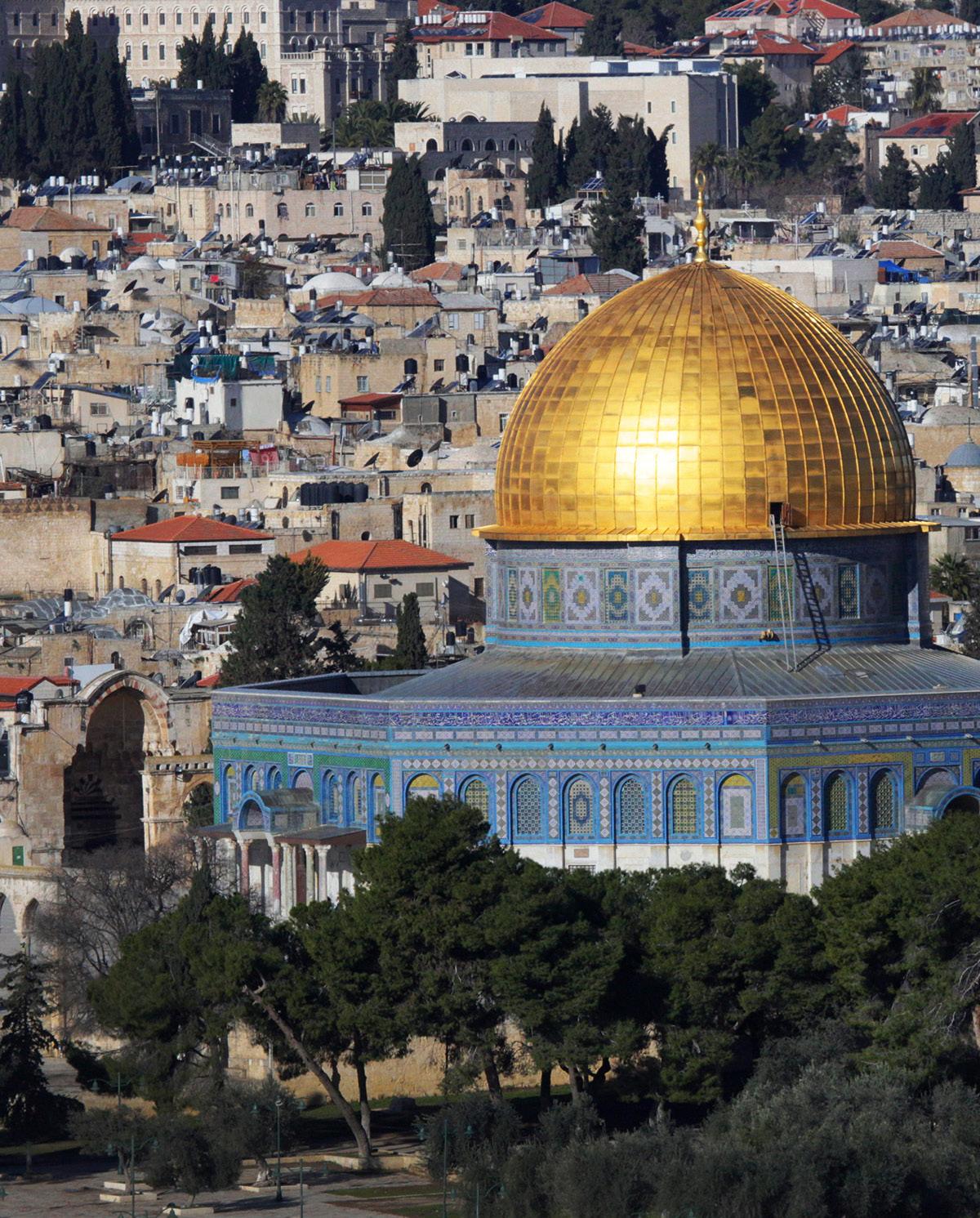 The Prophet s gestured with his right hand toward the east and said, “The people of the black flags Eeliya (Jerusalem)” (Jami’ al-Sagheer;14557). This hadith indicates the liberation of Jerusalem during
The Prophet s gestured with his right hand toward the east and said, “The people of the black flags Eeliya (Jerusalem)” (Jami’ al-Sagheer;14557). This hadith indicates the liberation of Jerusalem during

A time will come when nations will call each other upon you like people calling each other to a bowl [of food]...but you will be the foam [i.e., large in number] like the foam on the [surface of] a tor -
flags will arrive from Khurasan. Nothing will stop them until they ]i.e., the flags] will be wedged in during the time of Imam Mahdi about the same time this group will emerge from the East.

18 INSIGHT MAGAZINE

19 INSIGHT MAGAZINE
 by Mufti Yusuf Ahad
by Mufti Yusuf Ahad
C OMPL A INING
20 INSIGHT MAGAZINE
Human beings were created weak and susceptible to the sway of emotions. Good times can create pride, arrogance, and greed, while the lows of life may unnecessarily induce panic, fear, and stinginess. The verses of Surah Fajr explain as much: indeed man is created weak in courage. very upset when touched by evil. and when good touches him withholding [of it] (70:19-21).
Classic Islamic literature also expands upon these different states and stresses upon the believer to strive to obtain an equilibrium. True iman lies between fear and hope. Patience and gratitude often go hand in hand. The current state of the Ummah may have
Each of us has an inner voice, a subtle whisper in our minds that often expresses doubt about tackling difficult tasks or traversing challenging paths
21 INSIGHT MAGAZINE
Consider how the messengers described themselves in front of The Almighty. They humbly implored Allah, expressed their need, and admitted their inability to change their circumstances.
left many of us feeling broken, helpless, and depressed. We, however, are not directionless people. Allah has given us the direction we need to overcome our helplessness.
Each of us has an inner voice, a subtle whisper in our minds that often expresses doubt about tackling difficult tasks or traversing challenging paths. It’s a voice that whimpers, moans, and compels us to lose confidence in our capabilities. Wellmeaning people teach us to ignore this voice and forge ahead, reinforcing the belief that overcoming this voice is a sign of personal strength. As they should. Left unchecked, the inner self will blame others when we fall short. It will stunt our growth, limit our potential, and handicap us every time life challenges us.
However, I invite the readers to contemplate: what if this voice, as weak as it may seem, serves a greater purpose? What if these childish impulses of complaining could be useful? Could it be possible to use this innate human nature to our advantage? The Sunnah of the Prophets, peace and blessings be upon them all, offers a remarkable insight into this predicament.
The chosen people of Allah faced and continue to face challenges just as we do. As a matter of fact, they faced exceedingly higher degrees of hardships.
The hadith states, “The prophets are the most severely tested and there after the pious and then those most similar to them.” This begs the question, how did the pious people of taqwa deal with distress? Through their trials, they were in constant communication with Allah, turning to Him in joy, sadness, and need. Each word of their conversations, tone, and manner in which they communicated is worth noting. Consider how the messengers described themselves in front of The Almighty. They humbly implored Allah, expressed their need, and admitted their inability to change their circumstances. They showed their weakness and allowed their inner voice to speak, but most crucially, they directed it exclusively towards Rabbul Alameen, The Master of all creation.
When Allah praises Sayyiduna Ibrahim e in Surah Tawbah, He could have highlighted any of his numerous virtues. After all, Sayyiduna Ibrahim was bestowed the title Khalilullah, a rank and status that Allah reserved for only two of His chosen. The Quranic verses vividly show Ibrahim’s e strength, steadfastness, and resilience. Under the threat of being burned alive, Allah gave Sayyiduna Ibrahim e the courage to speak the Haqq. His courage was indeed remarkable. Curiously, however, in Surah Tawbah, Allah selected entirely different qualities of Sayyiduna Ibrahim e to highlight to mankind. Among them, He specifically identified Sayyidna Ibrahim e as awwah - someone who lamented, someone who gave voice to their suffering
22 INSIGHT MAGAZINE
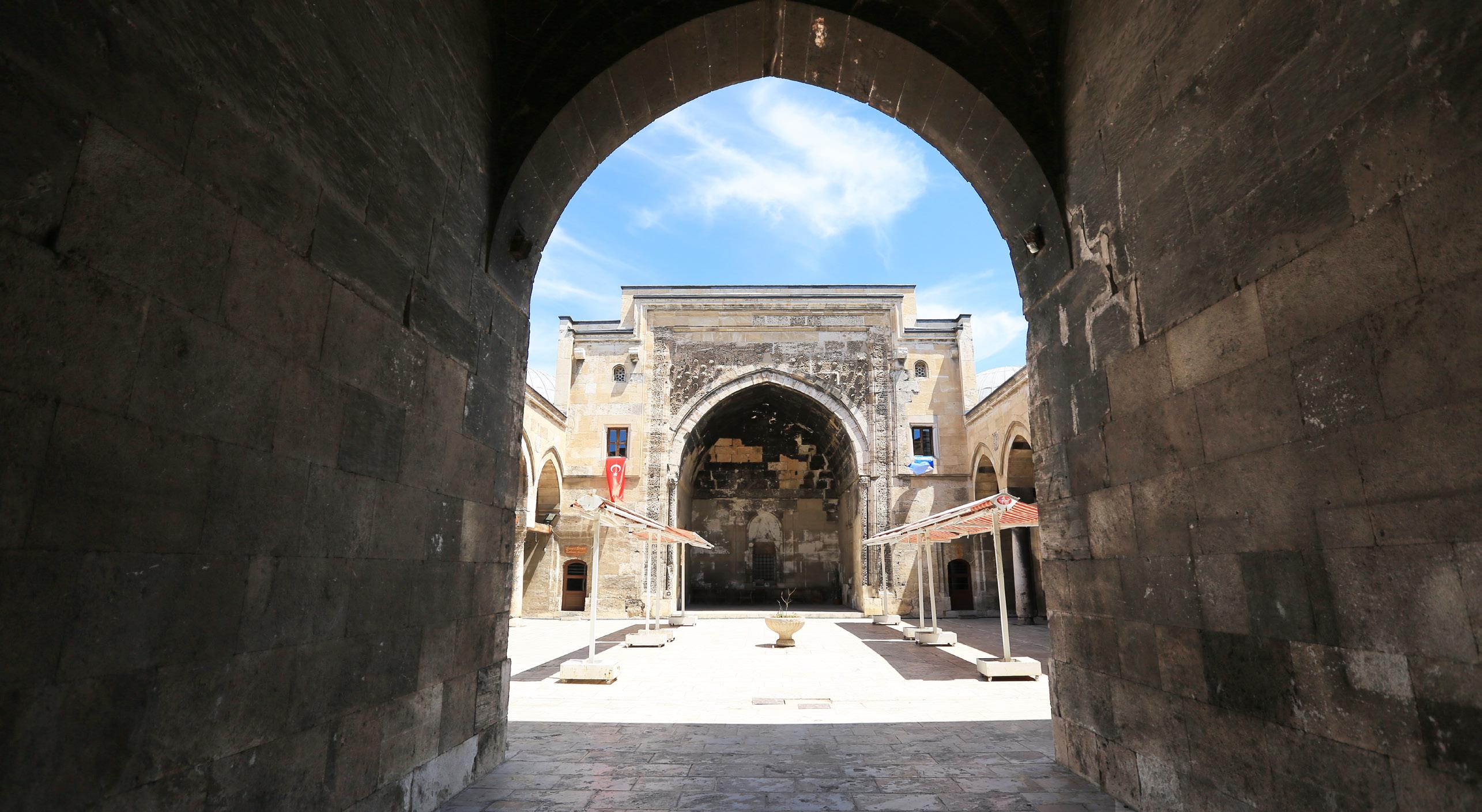
(literally: someone who says aah when they suffer). Allah’s selection of this description reflects vividly His fondness for Sayyidna Ibrahim’s e cries to Him. When we manage our own pain, our impulses may compel us to voice how hurt we are. Doing so in conversation with Allah will ensure that we become beloved and praiseworthy to Him.
Sayyidna Yaqub e provides another quintessential example of how to utilize our inner weakness in communicating with Allah. Confronted with calamity after calamity, losing first Yusuf, then Binyamin, and then his eldest son, he did what so many of us do. He complained. However, the reciter of the Quran will notice a clear distinction between our complaining and his. Sayyiduna Yaqub turned immediately to Allah, saying, “Only to Allah, I complain
of my suffering and my grief.” Not long after this incident, Allah returned Yaqub’s sons to him. His family may have censured him for yearning for his sons’ return, but Yaqub e knew well that his fate and the fate of his family was in the hands of Allah. He knew that he was complaining to the only one who answers the calls of the distressed when they call upon Him. He knew that his complaints did not fall on the deaf ears of the creation, and he knew his complaints held value in the court of The Creator.
How often do we find ourselves dissatisfied and then vent our frustrations to people instead of turning to Allah? If we gathered our frustrations and kept them from the people, and instead of displaying them to others, we let them out to Allah, would Allah not listen? Would He not ease our
23 INSIGHT MAGAZINE

difficulties, improve our conditions, and compensate us in a way that only He can? Would He not grant us more than we could imagine like He granted his messenger and servant Yaqub? Indeed, Allah could do all of this effortlessly.
Sayyidna Musa e, one of the strongest humans in the history of mankind, exemplified some of these same characteristics. Chased out of his country, in an unknown land, surrounded by unknown people, he turned helplessly to Allah. Calling out to his Rabb, he presented himself and his need. The Quran records His plea, “My Rabb, I am undoubtedly needy of any good that you grant me.” His characterization of himself in Arabic is uniquely more profound. Sayyidna Musa e calls himself a faqir. Allah showered His mercy on him. He gave him shelter, company, and a family. To have our prayers answered does not require worthiness. It does require neediness, weakness, and selfdeprecation.
Our esteemed Prophet s embodied the ultimate manifestation of humility before Allah. Numerous verses of the Quran and myriad accounts preserved in Hadith and Siyar literature bear witness to this. Among them, the historic Battle of Badr offers a compelling testament. The Prophet s led a modest, ill-equipped battalion of 313 Sahabah, their weaponry comprising rudimentary farming tools, against an imposing Meccan force of over 1,000 well-armed warriors. These factors captured the incredible imbalance of power. Yet, the Muslims, spurred by an unyielding spirit, overpowered their adversaries through sheer grit, determination, and unwavering faith.
The eve of the battle remains etched in history as evidence of the Prophet’s s profound humility and deep-seated reliance on Allah. Consumed by anxiety and concern not for his own safety but for his Ummah, for the survival of Islam, and indeed for the entirety of humankind, he s turned to Allah in devout supplication.
24 INSIGHT MAGAZINE
His eyes welled as he implored, pleaded, and beseeched Allah for His divine intervention. Stumbling upon the Prophet s in this intimate and desperate dialogue, Sayyidna Abu Bakr sought to offer solace. He reassured the Prophet s, comforting him with the unwavering belief that Allah would never forsake them in their hour of need. Allah answered the calls of desperation.
The teachings of the Prophets serve as a beacon guiding us toward a profound understanding of our inner voice. This voice, instead of being suppressed, should be embraced as a link between our raw emotions and Allah. By acknowledging our feelings and directing them towards Allah, we not only initiate a healing process but, more importantly, strengthen our bond with Him. Remember, in our vulnerability and acknowledgment of our dependence on Allah lies our true strength. Just as the Prophets found solace and resilience through their authentic communication with Allah, may we, too, discover comfort and fortitude on this journey. Let this practice of engaging with our inner voice and directing it toward Allah become a driving force, guiding us through life’s turbulence toward divine contentment and peace.
We ask Allah, at this time of pain, to have mercy on us. Allah, do not put our affairs in the hands of those who wish to do us harm; protect the honor, dignity, and chastity of our mothers and sisters, and improve our state of affairs. Oh Allah, guide us, for we are lost. Help us, for we are in desperate need of your help. Love us, despite our faults, for we are from the nation of your Beloved s.
Let this practice of engaging with our inner voice and directing it toward Allah become a driving force, guiding us through life’s turbulence toward divine contentment and peace.
25 INSIGHT MAGAZINE
Q: On the 3 rd of Ramadan, I plan to travel to my workplace, which is approximately 58 miles away from my residence, and will return on the evening of the same day. I would like to inquire about the permissibility of exemption from fasting during these days.
AIn principle, any individual who travels a distance of 48 miles or more (from the city limits) becomes a musafir once he leaves the boundaries of the city. Such a person is exempt from fasting, and no sin is incurred with the condition that one was a musafir at the time of subh sadiq (true dawn). However, if one has the capacity to fast, they should make every effort to do so as the Quran states,’And if you fast, it is better for you’ (2:184).
26 INSIGHT MAGAZINE
fatawa
Q: As a hafiza, I’m interested in leading a tarawih prayer for the sisters in my neighborhood at my house. Specifically, I would like to know if leading a small congregation of women in tarawih at home would be deemed acceptable within the realm of shariah and Islamic principles.
A:From the outset, the majority of scholars agree that it is not permissible for women to lead the tarawih prayer with a women-only congregation.
However, some scholars are of the view that it may be permissible for a hafiza to lead tarawih provided there is no publicizing or announcement and that it is performed within the homes.
Nevertheless, it would still be preferable for women to perform tarawih individually to avoid any difference of opinion (ikhtilaf).
Q: How do you pay zakat on stocks?
A: In principle, if one purchases a share in a company with the intention of reselling it for


capital gain, then zakat will be paid on the market value of the share.
If one purchases a share to hold it for the long term (i.e., a year or more), then one will pay zakat based on the percentage of the company’s zakatable assets, which can typically be obtained from the corporation’s annual report. Nevertheless, if determining the company’s zakatable assets proves challenging, a reasonable assumption is that 40% of the assets are zakatable, as most companies’ zakatable assets do not surpass this percentage. Consequently, the zakat payment will be 2.5% of this estimated 40% percentage, equivalent to paying 1% of the stock’s market price.
For example, the market price of one’s shares is $1000. Based on the 40% assumption, the estimated zakatable assets would be $400 (40% of $1000). The zakat payment would be 2.5% of the estimated zakatable assets, which is $10 (2.5% of $400). That is equivalent to 1% of the market price of the total shares ( $10 / $1000 ).
27 INSIGHT MAGAZINE
Q: Is it permissible for one to give zakat to his parents or siblings?
A: In principle, Zakat funds cannot be given to the direct ascendants (parents, grandparents etc.) or the direct descendants (children, grandchildren etc.) of a person. However, zakat may be given to any other relatives provided that they are an eligible recipient of zakat. An eligible recipient of zakat is one who does not possess wealth that exceeds the minimum nisab (612.35 grams of silver or 87.479 grams of gold).
In fact, one will receive double the reward for giving zakat to their relatives. One for fulfilling the obligation of zakat and the other for considering family members and maintaining family ties.
Q: Would zakat be valid if it was given through a charity website? Will giving to a madrasa absolve the obligation of zakat?
A: In reference to your question, one should try to exercise precaution by personally discharging the zakat to an eligible recipient. Zakat should only be given through an organization only if one is satisfied that the organization is reliable and
trustworthy. One must also inform the organization that the amount being given is zakat money and not optional charity. Zakat can only be given to eligible recipients in a way that they are made the owner of the assets. Thus, zakat money cannot be spent on: construction of buildings, supporting the running costs of an organization etc.
Similarly, giving the funds of zakat to a madrassah or any other institution will only be permissible if it is ensured that the institution is reliable and trustworthy (as mentioned above).
Q: If a person breaks his fast at the wrong time thinking that the sun has already set, would he have to repeat his fast? Similarly, If a person woke up late for suhoor and ate after the Fajr azan had already commenced? Will such a person also have to pay kaffarah for breaking his fast?
A: In principle, it is necessary for a fasting person to exercises caution when breaking his fast and confirm that the sun has completely set. If a person breaks his fast before sunset thinking that the time for iftar has begun, the fast will have to be
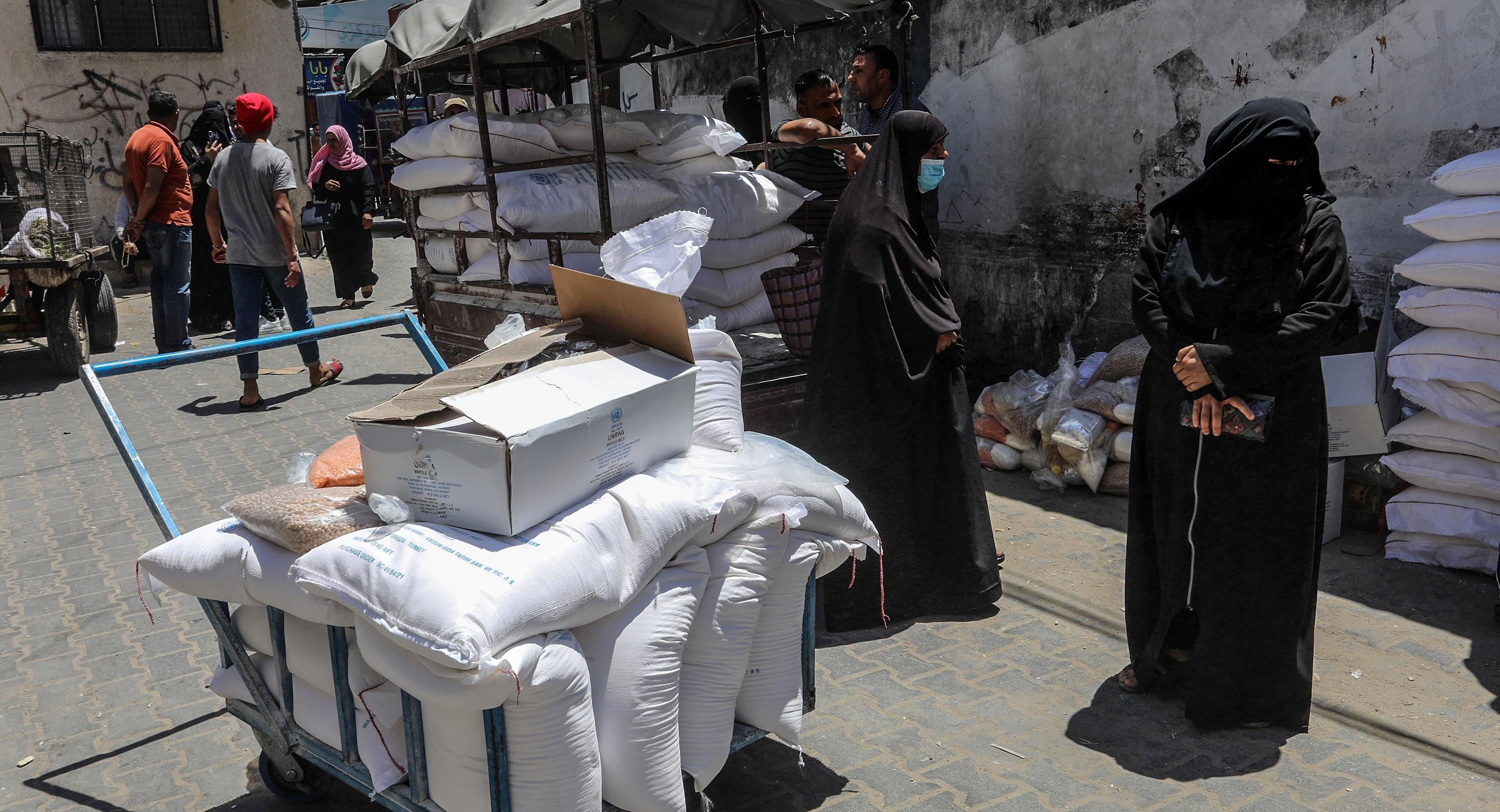
continued on p.30
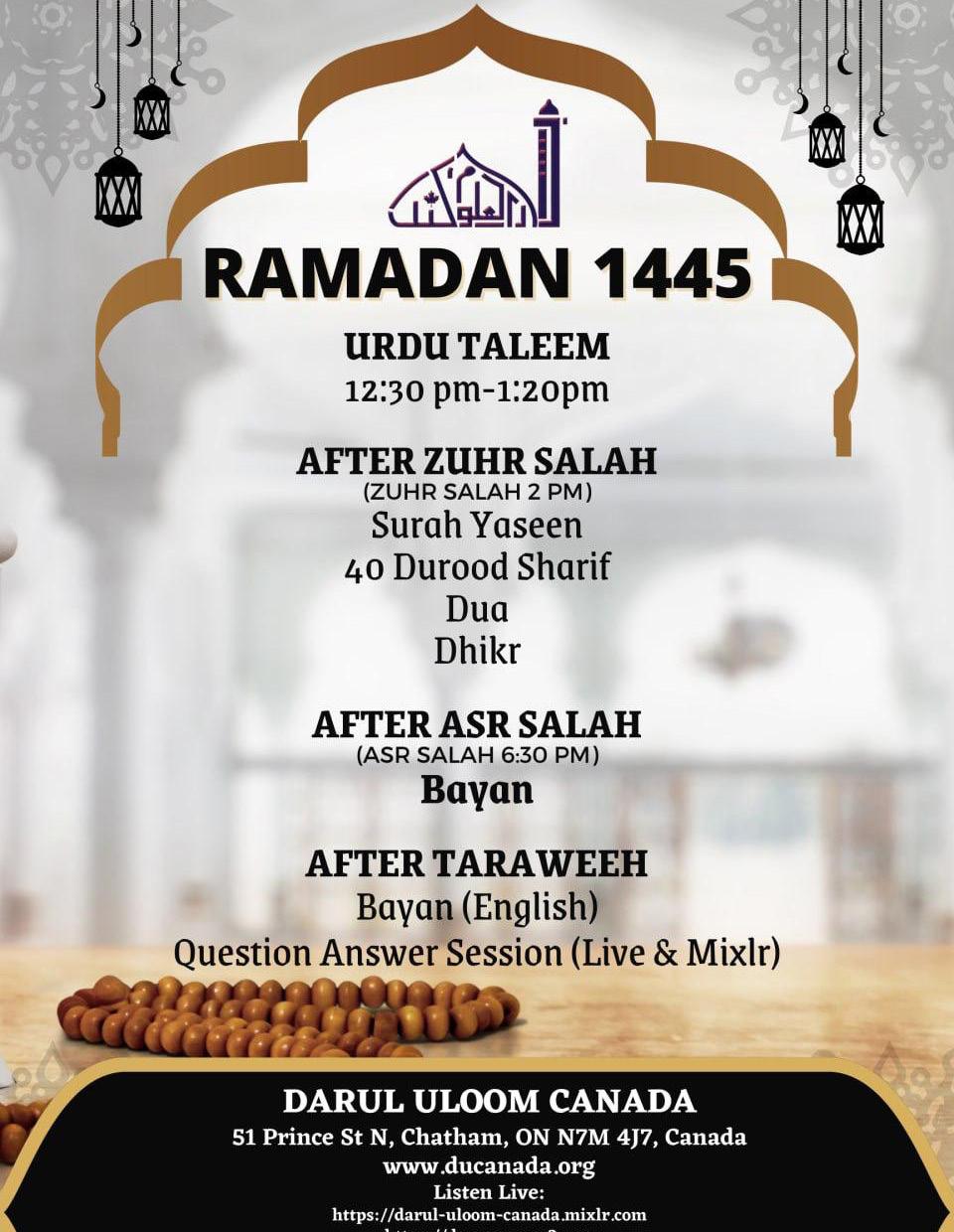
repeated.
Similarly, if a person mistakenly ate after the Fajr azan was called or after Fajr time started, such a fast will be invalid. Therefore, the fast will have to be repeated. There is no kaffarah for either of the scenarios.
Q: I am planning to take my family (wife, son, and myself) for Umrah soon Insha Allah. We wanted to know if it would be permissible for us to carry our child while performing tawaf and during salah. Also,
a) If there is excessive movement involved, then it will invalidate the prayer.
b) If there is little movement involved (‘amal qalīl) and the child is picked up unnecessarily, then this action will be makruh.
2. Impurities on the child
a) If the impurity is more than a dirham (the size of a quarter) and the child is picked up with or without reason, the salat is invalidated
b) If the child has impurities on them but
In principle, it is necessary for a fasting person to exercise caution when breaking his fast and confirm that the sun has completely set. If a person breaks his fast before sunset thinking that the time for iftar has begun, the fast will have to be repeated.
what is the ruling in this same scenario if our child is impure?
A: In essence, one should avoid picking up their child unless necessary to ensure one prays their salah without any unnecessary movements.
There are two factors that contribute to the invalidity of one’s prayer. Below are the following factors with its rulings:
1. Excessive movement from picking up and holding the child (‘amal kathīr)

the parent does not pick them up, rather the child holds or leans onto the parent who is praying or sits on the parents’ lap, then the prayer will be valid with the condition that the parent does not hold onto the child.
However, if one is carrying a child while performing tawaf, the tawaf will be valid. The tawaf will be makruh if the child has any impurities on it.
Q: I often get a stuffy or runny nose during the winter. I usually use Vicks to help relieve my symptoms. If this happens in Ramadan, will I be able to use Vicks or will it invalidate my fast?
A: In principle, the fast will break if a discernable substance reaches the stomach. Vicks releases vapors of menthol, eucalyptus, and camphor that can soothe nasal passages. This can trigger receptors in your brain that make you think you are breathing more clearly. Furthermore, Vicks is a substance which is put on the exterior of the body or inhaled through the nose and does not reach the stomach. Therefore, application and/or smelling Vicks will not invalidate one’s fast. n
30

Respecting Boundaries
Gender Separation in the Islamic Paradigm
by M. Dr. Mateen Khan
Abstract: This article delves into the consistent policy of Islam regarding gender interaction, emphasizing the importance of gender separation to protect the heart and prevent illicit behavior. Drawing from the Quranic verses and Prophetic teachings, the article traces the historical precedents of gender separation and highlights its implementation in different contexts. It also addresses is-
sues such as seclusion, modesty, and preventing temptation, providing insights into the principles underlying Islamic teachings on gender interaction. The article concludes by emphasizing the coherence and consistency of Islam’s approach to gender separation throughout history and its relevance in contemporary Muslim societies.
32 INSIGHT MAGAZINE
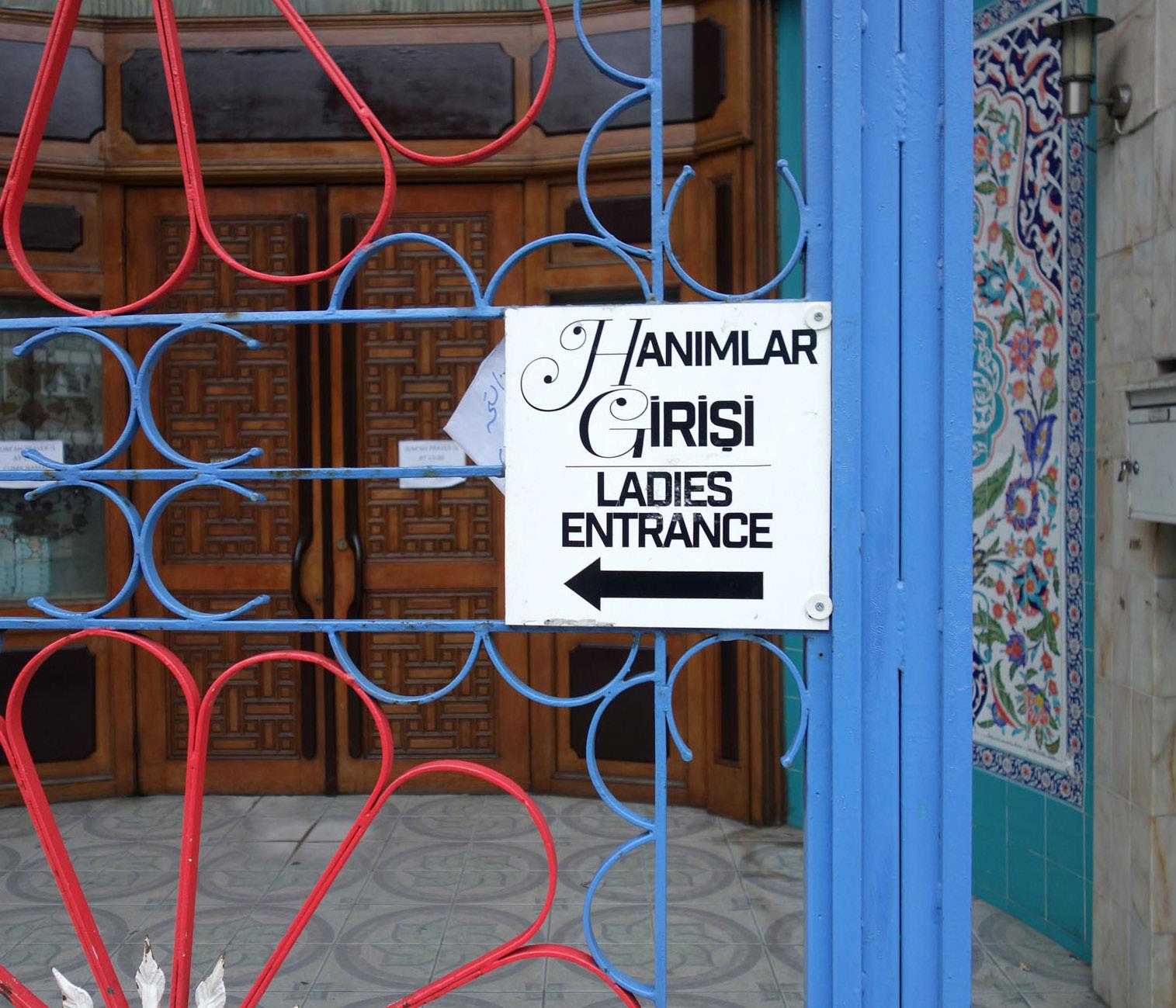
33 INSIGHT MAGAZINE
Gender separation
refers to segregating men and women in into distinct spaces (e.g., two rooms) with separate entrances or separating them with a physical barrier within a shared room, effectively creating two different spaces.
Gender segregation
refers to segregating men and women in one area with near elimination of seeing one another. This could involve distancing the two genders behind one another without any significant physical barrier.
Islam as a Comprehensive Doctrine
Islam is a comprehensive doctrine[i] – an all-encompassing set of beliefs and principles that create a comprehensive framework that gives Muslims a coherent outlook of the world. In other words, as divine guidance, it is inherently consistent, self-contained, and provides a unified perspective on every aspect of life. Islam, as a doctrine, stems from the guidance of the prior Messengers, peaking with our beloved Prophet s, and then continuing through his spiritual and intellectual heirs, the ‘ulama and those that follow them. Islam, as we shall demonstrate, has had millenniums-long consistent policy, congruent with its worldview, on shielding the gaze and separating the genders to protect the heart and prevent the illicit. A Muslim today need only evaluate their context through an Islamic lens, i.e., the same rubric inherited throughout the ages, to understand that gender separation is consistent and coherent.[1]
In Surah al-Isra’, Allah, the Exalted, outlines the Islamic paradigm by stating, “Do not go near unlawful intercourse. It is truly a shameful deed and an evil way.” (al-Isra’ 32) Not simply sufficing on the prohibition of unlawful intercourse, Allah and His Messenger ﷺ block many of the means to unlawful intercourse, chief being lowering the eyes and covering the ‘awrah. In Surah al-Nūr, Allah, the Exalted states, “˹O Prophet!˺ Tell the believing men to lower their gaze and guard their chastity.
34 INSIGHT MAGAZINE
That is purer for them… And tell the believing women to lower their gaze and guard their chastity, and not to reveal their adornments (i.e., their ‘awrah).” (al-Nūr 31-31) In mentioning the gaze and chastity, He outlined both the starting point and the outcome of the temptation of men through women and the temptation of women through men.[ii] Since a cohesive community is built upon the duality of male and female and the individual’s integrity rests upon protecting the heart and limbs, Islam’s approach to gender interaction colors just about every aspect of Muslim society. After having outlined its importance, we proceed with a discussion on gender interaction through the Islamic worldview.
Gender Interaction Through the Prophetic Era
Perhaps the first narrated incident about inappropriate gender interaction comes about the pre-Islamic Jewish tribes. As transmitted in Muslim, the Prophet s said, “The world is sweet and lush. Indeed, Allah has placed you as vicegerents in it to see how you act. So, fear the (attractions of) the world and women. Verily, the first trial to afflict Banī Isra’īl occurred regarding women.” Sayyidah ‘A’ishah explained from the Prophet s that “the women of Banī Isra’īl would use wooden stilts to [elevate themselves to] look at men in the masjids.” Sayyiduna ‘Abdullah ibn Masʻūd confirmed, “The men and women of Banī Isra’īl prayed as one group. If a woman had a male friend (in the masjid), she would
Gender intermingling
refers to the situation when men and women mix in one area, often sitting or standing next to each other. This can include a shared entrance for both genders.
Gender gathering
refers to gathering men and women in one area while allowing them to see each other. This could involve gathering the two genders on opposite sides of an area without any significant barrier obstructing their view of one another.
TER MIN OL OGY
35 INSIGHT MAGAZINE
wear wooden stilts raising herself to see him.” In response to these transgressions, both Companions related that Allah punished Banī Isra’īl by prohibiting women from the masjid.[iii]
Here is an ancient precursor to the initial approach of our Sharīʻah and what transpired in early Islam. The general rule for the Jewish tribes was one of permissibility for women to attend their gatherings in the masjids, conditioned with not viewing the opposite gender. As Sayyidah ‘A’ishah and Sayyiduna ‘Abdullah ibn Masʻūd noted, Allah revoked their permission to attend the masjid space once their behavior changed.[2] This will be a recurring theme that the Sharīʻah not only separates the genders but also prevents the gaze. Another incident occurred in the Prophetic era. When a particularly attractive woman came to pray in the Prophet’s s masjid, some men would stand in the front rows to protect their eyes from falling upon her. In contrast, others stood in the back rows to see her better. Acknowledging the harm of the gaze and seeking to block it, Allah, the Exalted, states in Surah al-Ḥijr, “We certainly know those who went ahead (in the rows) from you, and we know those who remained behind” (15:24). [iv] Further, His Prophet s encouraged the men to seek the frontmost rows and the women to seek the backmost rows positioning them behind the rows consisting of boys.[v] This illustrates an important point: the separation of men and women in the Prophet’s masjid was to prevent the gaze of one from the other. Hence, he placed the men at the front and the women at the back, with the boys in between. Otherwise, he ould have gathered the men to one side of the masjid (e.g., the left side) and the women to the other (e.g., the right side), but that would not have adequately obstructed their gaze. Thus, he instituted gender segregation in the masjid by having the women leave immediately after the farḍ prayer

before any of the men could get up (or see them), expressed for them to have a separate entrance, and segregated them in the streets leading to it.
An Important Aside
Before we continue the discussion on gender interaction, let us highlight other relevant and connected issues. The verse of Surah al-Isra’ prohibited unlawful intercourse (zina’) and made impermissible any behavior that possibly leads to illicit relations or creates such desires in the heart, such as touching, gazing, isolation (khalwah), immodest speech, dress, and behavior. We find the steps of that path are blocked (sadd al-dhara’iʻ) to varying degrees by the Sharīʻah. We will divide examples of these generally into two categories: those items that are categorically prohibited (ḥaram) and those that are impermissible (taḥrīmī).[3] The former requires a life or limb-threatening need (ḍarūrah) to make it permissible, whereas the latter requires a less stringent need (ḥajah). In both categories, the underlying ratio legis (‘illah) is the prevention of temptation that may lead to unlawful intercourse in the physical sense and the protection of the heart from the harms of unlawful gaze in the spiritual sense.
.Seclusion with the Opposite Gen-
36 INSIGHT MAGAZINE
der (khalwah)
As a term, khalwah refers to an unrelated (non-maḥram) male and female being alone in an enclosed space. Both Bukharī and Muslim relate that the Prophet s said, “A man should not be secluded with a woman except in the presence of a maḥram.” (B 5233, M15) [vi] This is a categorical prohibition that is bypassed only with a life or limb-threatening emergency (ḍarūrah), e.g., a female tending emergently to an injured male in an enclosed space.
An example of an impermissible khalwah would be one that we term nearkhalwah. Examples of this are being alone in a virtual space or along with another nonmaḥram female due to the fear of temptation that normally exists between two healthy individuals. Although khalwah in the technical sense is not found, the near-khalwah situation is still impermissible, to be avoided, and sinful if done intentionally.[vii] The barriers to the near-khalwah situation are less compared to khalwah.
Covering the ‘Awrah, Lowering the Gaze (ghaḍḍ al-baṣar) & Touching (lams)
The term ‘awrah refers to the parts of the body that must be covered before another person. The ‘awrah of a woman categorically prohibited for her to reveal before a nonmaḥram man is her entire body except for her face, hands, and feet. This categorical prohibition is bypassed only with a corresponding need, e.g., a male tending to a female afflicted by trauma to a part of her ‘awrah. Likewise, looking at the ‘awrah of a non-maḥram or touching it is categorically prohibited except for an appropriate need. In the example of impermissibility, the face of non-elderly females should be covered before non-mahram men.[viii] Although uncovering it is not as severe as the rest of her ‘awrah, it is impermissible and sinful if done.
The ḥajah to overcoming impermissibility is comparatively less, e.g., when needing to be identified before a judge or government official. Likewise, looking at her face, if the possibility of temptation exists, is impermissible except for an appropriate ḥajah.[ix] However, touching any part of a non-maḥram, including the face and hands, is categorically impermissible as the Prophet s and jurists prohibited it as a necessary means to blocking any avenue to temptation and unlawful intercourse.[x]
Avoiding Attention
Rather than the antagonism often found in the modern Liberal mind, Muslim men and women are fellow passengers in their spiritual journey. When one group is tasked with protecting themselves, the other group is tasked with assisting them. Just as one is tasked to lower their gaze, the other is tasked to not call attention to themselves. In Surah al-Aḥzab, Allah, the Exalted, states to women, “Do not display yourselves as women did in the days of pre-Islamic ignorance (jahiliyyah)” and “Do not be overly effeminate in speech with men or those with sickness in
l
LOWER THE GAZE
37 INSIGHT MAGAZINE
Is the i’tikaf Sunna?
The Sunna of i’tikaf predates the prophethood when the Prophet s would go into isolation for 40 days in the cave of Hira. After the Hijra, he formally established the i’tikaf in the masjid for the last ten days of Ramadan.
How much importance did the Prophet s give to this Sunna?
As mentioned above, the Prophet s missed it’ikaf on two occasions in the 2nd and 8th A.H. But that didn’t stop him from making up the ten days of i’tikaf in the month of Shawwal.
In fact, Imam Malik even opens a chapter, “The qada of i’tikaf’ [Muwatta; 1/316]. To make up for another missed itikaf (most likely after the conquest of Makka), he made itikaf for twenty days the next Ramadan (Musnad Abu Dawud al-Tayalasi, 1/448).
How often did the Prophet s perform i’tikaf?
The Prophet s tried to perform every year but was unable to on the 2nd due to the battle of Badr and on the 8th due to the conquest of Makka.
Imam Abu Hanifa completed 61 Qur’an every Ramadan (Manaqib Abi Hanifa: p.23)
Imam Shafi completed 60 Qu’ran every Ramadan (Manaqib al-Shafi: 1/279).
Sufyan Thauri would put every other ibada aside and focus on recitation only. Mujahid would complete one quran between Maghrib and Isha
I’tikaf literally means to seclude, withdraw onself and to go into isolation.
What is itikaf?
38 INSIGHT MAGAZINE
I’itikaf in
RAMADAN
What should we do in itikaf?
The purpose of itikaf is to develop a stronger bond with Allah, and the best way to do establish that bond is through recitation of Qur’an. The Sahaba would devote their whole nights to recitation of Qur’an in prayer, though sometimes their voices became loud. The Prophet s was forced to come out of his tent on one such occasion and say, “When a person is praying , he is in communion with his Lord. So, he should be mindful of what he says; and, do not raise your voices above each other [while praying in itikaf] (Musnad Ahmad: 10/278). Recitation of Quran quietly in and out of prayer is the most virtuous worship in Ramadan. The Prophet s rehearsed Quran with Jibril e every year in Ramadan. In the last year of his life, he rehearsed it twice [Bukhari].
What are the benefit of i’tikaf?
1. Reconnecting with Allah
2. Populating the house of Allah
3. Finding the Night of Qadr
4. Detoxification of soul from love of dunya
5. Preparing for day we meet our Lord
6. Reviving a Sunna
Did the Prophet s ever make i’tikaf in the whole of Ramadan?
He did. He performed i’tikaf on the first ten nights seeking the Night of Qadr, then the second ten nights and then, Jibril told him that the Night of Qadr was in the last ten nights. Thereafter, he performed itikaf on the last ten nights (Bukhari: 1/162).
39 INSIGHT MAGAZINE
their hearts may be tempted but speak in a moderate tone.” (33:32-33) Thus, the Prophet s, to assist the men in lowering their gaze, forbade women from calling attention to themselves. He also said to the women, “Any of you who goes out to the masjid should not come near perfume.”[xi] Scholars extrapolated this principle and included attractive clothing and adornment in the prohibition as well.[xii]
Likewise, zina’ exists along a prism. From unlawful intercourse to misusing other organs, they are all prohibited or impermissible, although their severity may vary. Thus, the Prophet s also assigned a type of zina’ to the eyes, ears, tongue, hand, foot, and heart.[xiii] This illustrates that the Sharīʻah does not simply forbid the above in the categorically prohibited and strictest sense only. Instead, it makes impermissible those things that approach them.[4]
Gender Separation After the Prophetic Era
As Islam is a comprehensive doctrine, the principles underlying its outlook are coherent and consistent in all spheres and times. Among the primary means by which the Sharīʻah avoids temptation and unlawful intercourse is the prevention of ikhtilaṭ. Ikhtilaṭ is a word used in the Prophet’s s time and by subsequent generations of ‘ulama to indicate the mingling of people. It can be general, as Imam al-Bukharī narrated from the Prophet s, “The Believer who mingles (yukhaliṭu) with people and remains patient with their harm is rewarded greater than one that does not mingle and remain patient with their harm.”[xiv] However, it is often used specifically for when men and women mingle, as in a narration reported by Abū Dawūd, “[The Companion Abū Usayd al-Anṣarī] heard Allah’s Messenger s say to the women while he was standing outside the
masjid and the men were mingling (ikhtalaṭa) with the women in the street, ‘Step back for you should not take to the middle of the street. Keep to its sides.’” Like the subsection examples above, ikhtilaṭ may sometimes be ruled categorically prohibited and sometimes impermissible based on context and circumstance in keeping with the Islamic paradigm. The following subsections outline that the simple absence of gender intermingling does not make a gathering permissible.
The Congregational Prayers
Recall the previous hadith in which the Prophet s informed us of the punishment and trials of the Jewish tribes. When they violated the conditions of attending the masjid by gazing at one another, their women were then prevented from it. Very soon after the passing of the Prophet s and his close Companion Abu Bakr, attitudes and practices began to drift. Men and women neglected the divine command to lower their eyes, cover themselves properly, and avoid attention.

40 INSIGHT MAGAZINE
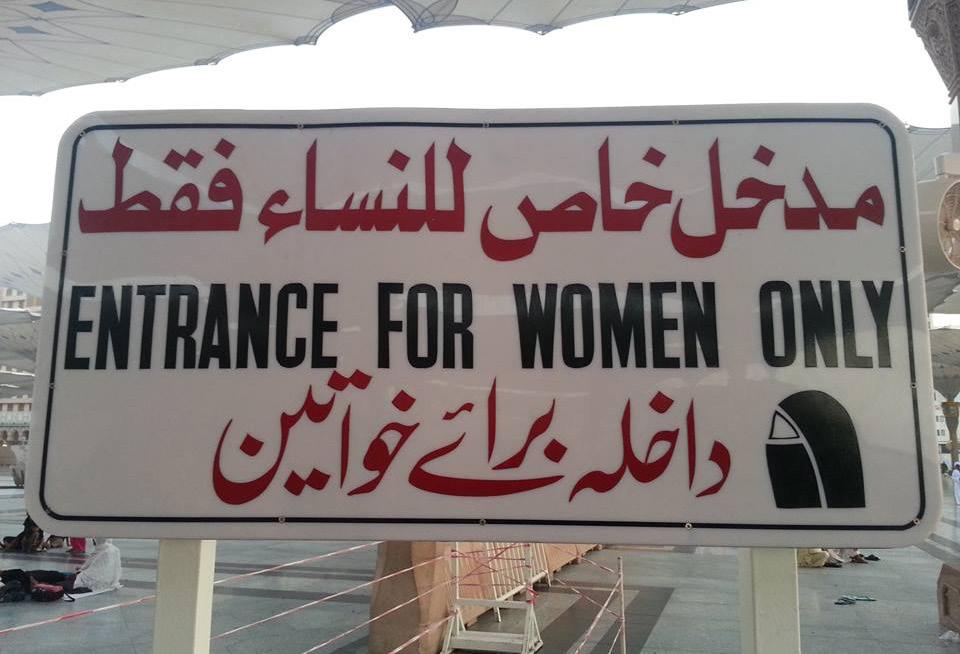
Their interactions increased to such an extent that it concerned the muftiyyah, confidant, and wife of the Prophet s, ‘A’ishah. She recalled the principle mentioned above about the Jewish tribes and expressed what the Prophet s would have done, saying, “Had Allah’s Messenger s witnessed what has befallen the women, he would have prevented them (from the masjid) as the women of Banī Israʻīl were prevented.” (Bukhari 569) Likewise, the Companion-Jurist ‘Abdullah ibn Masʻūd made the same connection, ruling, “Remove them from the masjid as Allah had removed [the women of Banī Isra’īl].”[xv] Similar sentiments have been transmitted from the Companion-Jurists ‘Umar ibn al-Khaṭṭab and Zayd ibn Thabit. Superficially, this may appear as a shift away from the Prophet’s
establishing gender segregation. However, those with deeper insight and an Islamic outlook will see that it is a continuation of the principles laid out in the time of Banī Isra’īl and confirmed by the Prophet s. When the circumstances changed, the principles dictated a change from gender segregation to gender separation. [5]
The ‘Īd Gatherings
A similar thing took place with the ʻĪd gathering. In the Prophet’s time and for much of Islamic history, the ‘Īd gathering took place on the city’s outskirts in an open area, rather than the confines of the masjid as we are used to in
41 INSIGHT MAGAZINE
America. He requested the children and women to attend the open area. He encouraged the women to veil themselves and to bring even those menstruating who cannot pray or enter the masjid usually, indicating that ‘Īd, at that time, was more about the gathering than the prayer. As the ‘ulama expounded, he wished to show off the numbers and strength of the Believers. However, his method of gender segregation while blocking the mutual visibility of the genders continued, even outdoors. After that, as the people’s conditions changed, Imam Abū Ḥanīfah and other jurists of the Tabiʻīn transitioned into an era of gender separation consistent with prior Islamic principles. They ruled it impermissible for all women, except the elderly, to attend any of the daily congregational prayers, Jumuʻah prayers, or ‘Īd gatherings.[xvi]
Miscellaneous Gatherings
As for other gatherings in the time of the Prophet s, the women approached him to ask about an exclusive gathering for them. Since the circumstances are different than the prayer (only one congregation takes place for each ṣalah), the female Companions asked for an assembly concordant with gender separation so they could be educated and admonished.[xvii] The salaf al-ṣaliḥīn and
subsequent ‘ulama continued this practice for all gatherings in which separation was achievable, like gatherings before a judge (qaḍī), celebratory gatherings (e.g., weddings), funeral processions, and family gatherings in which non-maḥrams are present. One of the early Jurists Fakhr al-Islam al-Bazdawī said, “When being present in the masjid for prayer is impermissible, indeed being present for gatherings of admonition is (even more) impermissible, especially with those ignoramuses who wear the garb of ‘ulama.”[xviii]
The Islamic outlook on gender interaction is clear and consistent with its principles and paradigm throughout time. As a means to eliminate unlawful intercourse, the Sharīʻah has blocked the avenues to gender intermingling, prime among them ikhtilaṭ. As the nature of ikhtilaṭ changed, the ‘ulama, who embody the Islamic paradigm, limited gender interaction from the time of the Tabiʻīn to the modern era with policies of gender separation to protect the Believers.[6][xix]
In al-Aṣl, Imam Abū Ḥanīfah (d. 120h/ 767CE) is quoted, “No, I do not permit women to leave [for the prayers] except for the extremely elderly female (al-ajūz al-kabīrah). I only allow her to leave for the
Thus, men and women are complementary. They are to assist one another in chastity and not leave them to their desires. Men are not to look at women without need; women are to assist their brothers by covering.
42 INSIGHT MAGAZINE
two ‘Īds and the congregational prayers of Fajr and ‘Isha’.” Thereafter, a thousand years of scholarship continued this as evidenced in al-Hadiyyah al-‘Ala’iyyah by Shaykh ‘Ala’ al-Dīn al-Dimashqī al-Ḥanafī (d. 1306h/ 1888CE): “Women attending the congregation is impermissible, whether for jumuʻah, ‘Īd, or admonition, for the elderly female, day or night, except for the women in the extremes of age (al-‘ajūz al-faniyah); just as it is impermissible for a man to lead women in a house when there is no one else present from his (female) maḥram.”[xx]
The Role of Leadership in Gender Interaction
The role of Muslim leadership, including the ‘ulama, is to safeguard the religion and continue the prophetic mission of purifying and teaching the people. [xxi] Part of this is to safeguard the people’s hearts and minds from the harms of avoidable gender interaction such that only good comes from one another. Consistency in framework demands consistency in jurisprudence and spirituality. What is harmful spiritually, e.g., sights that negatively affect the heart, should also be impermissible or disliked in jurisprudence. Numerous scholars, like Imam al-Ghazalī, pointed out the physical and spiritual harms in this world and the next. Ibn al-Qayyim stated, “From this, it is known that it is binding for the one in authority to forbid intermingling in the marketplaces and the gatherings of men,
the ruler is responsible for that, and the temptation (fitnah) that results from intermingling is immense indeed.”
Our American context lacks Islamic authority, so the task falls upon the ‘ulama and Muslim leaders to create environments that safeguard the hearts and minds of Muslims. When guidance related to gender interaction is abandoned for practices of gender intermingling and gender gathering or Muslims no longer adhere to the principles mentioned in the Avoiding Attraction subsection, it is

incumbent upon Muslim leadership to rectify the environment to protect the Believers. On some level, this responsibility falls on every Believer. The Prophet s turned away the face of Sayyiduna Faḍl ibn ‘Abbas when he caught him gazing at a woman. Sayyiduna ‘Umar chastised the unnecessary mixing of men and women. They did not leave one another to their own devices. For what merciful brother or sister would do that?
Thus, men and women are complementary. They are to assist one another in chastity and not leave them to their desires. Men are not to look at women without need; women are
43 INSIGHT MAGAZINE
to assist their brothers by covering. Women generally desire to be looked at, and men are to assist their sisters by not looking. Allah, the Exalted, indicates as much in Surah al-Nūr when He commands the men, “Lower your gaze and protect your private parts (from sin),” and then addresses women with the same commands but adds, “Do not display your beauty except what becomes apparent from it” and “Do not display your beauty except to your husbands and [maḥram men].”[xxii] In essence, saying, “O men, protect your eyes and your private parts, and O women, assist them as their partners in religion by not displaying what is impermissible for their eyes to fall upon.” We have already addressed how our sisters assist our brothers in the Avoiding Attention subsection above. The role of ‘ulama, leadership, and every Muslim is to assist one another in keeping their eyes and hearts safe from disobedience and spiritual disease.
Solutions for Contemporary America
As illustrated, the Prophet s established gender segregation by minimizing visibility within enclosed Muslim spaces. However, he conditioned this setup and opened the door for gender separation by hinting towards prohibition: segregating men and women out of sight in the masjid, having women exit separately when they came, encouraging them to pray at home, and gathering them separately in other settings. The knowledgeable among the Companions, including his wife and the example for all Muslim women to come, ʻA’ishah, furthered the separation and absence of visibility. The ‘ulama from the Salaf and subsequent generations continued the same trajectory concordant with a changing population throughout Islamic scholarship until our time.
Today, in America, Muslim spaces abound in the form of madrasas, masjids, and other venues for Muslim gatherings. Additionally, the need for women’s education and admonition has always existed and continues to in our time.[xxiii] Just as those before us
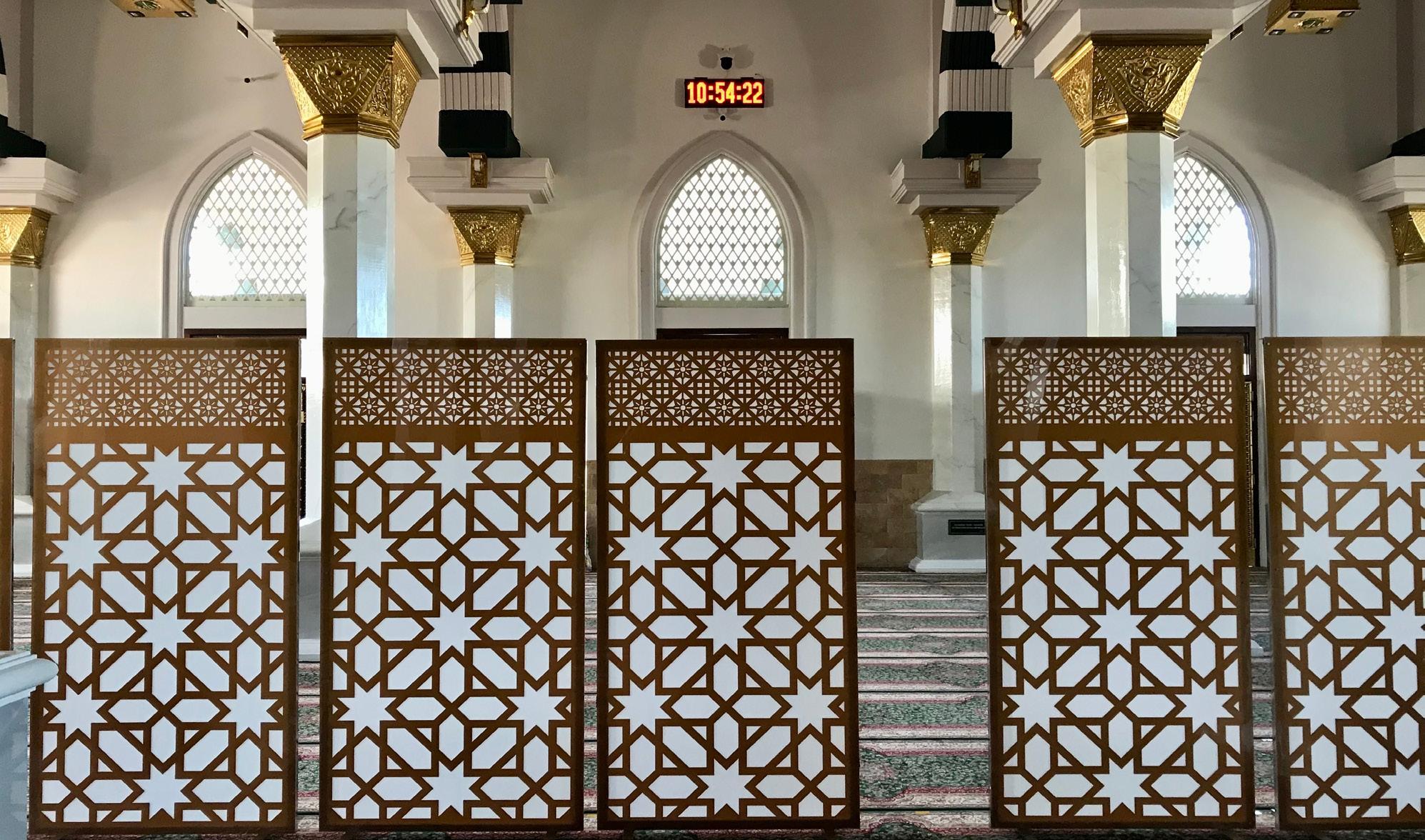
44 INSIGHT MAGAZINE

men. A divider is not discussed much in the prior texts because our predecessors implemented gender separation by separating men to the public sphere and women to the private. Both spheres inculcated an Islamic outlook for their members.[7] A divider was unnecessary. In contrast, the attendance of women in public spaces in America is completely normalized with little to no prospect of a reverse in trends. In other words, in our contemporary American context, their presence is a foregone expectation. This, coupled with the ongoing need for female education and rectification, requires a solution consistent with our principles. More than nine-hundred years ago, Imam alGhazalī suggested a barrier erected between
instituted gender separation in Muslim lands based on an Islamic paradigm and principles, how do we continue them while living in nonMuslim America, whose foundation is western Liberalism?
Muslim Spaces
Muslim spaces are those spaces in which Muslims control the environment’s setup. In Muslim lands, this includes the entirety of their spaces. In non-Muslim lands like America, this includes spaces in which Muslims are able to create an environment keeping with our principles, including our homes, masjids, maktabs, third spaces, ceremonies, and other gatherings. In these spaces, Muslims should be in their natural, supportive element, an environment conducive to their iman and purification. Since we lack an ethos conducive to our principles by being surrounded by actualized modern Liberalism, Muslim spaces in non-Muslim lands are essential to foster an Islamic outlook. As mentioned, this responsibility falls upon our ‘ulama and leaders specifically and on every Muslim generally. We have seen how our predecessors implemented gender separation by restricting congregations of the daily, jumuʻah, and Īd prayers for those upon whom they are obligated, i.e.,
A divider is not discussed much in the prior texts because our predecessors implemented gender separation by separating men to the public sphere and women to the private.
45 INSIGHT MAGAZINE
the two genders that effectively separated them and prevented the gaze.
“When the speaker is a non-elderly man (shabb), attractive to women in dress and appearance, with plenty of poems, gestures and movements, and women attend his gathering, this is an abomination (munkar) which must be prevented, since the corruption in this is greater than the benefit…It is obligatory to erect a screen/barrier between men and women that prevents seeing [one another], as that is also an anticipated cause of corruption. Norms bear testimony to these abominations.”[xxiv]
Our outlook and principles in contemporary America are best achieved by actualizing gender separation in Muslim spaces.[8] Depending on resources, this may be done by having their gatherings in different buildings, different rooms, or one room with an effective barrier, eliminating not only intermingling but also visibility. Organizers should use electronics, media, and other comforts to maximize learning and maintain principles.
Non-Muslim Spaces
Non-Muslim spaces are those spaces in non-Muslim lands where Muslims do not have control over the setup, including workplaces, schools, and other public institutions.[9] When one is unable to alter the environment meaningfully, one must constantly be aware of lurking dangers and keep themselves on guard. When able to improve the environment towards that which is Islamic, they will encourage the good and discourage the evil. Non-Muslim spaces are not, nor should they be expected, to foster an Islamic outlook, protect the eyes, or be conducive to a pure heart. They are spaces in which modern Liberal values and outlook are actualized. Thus, Muslims will lower their gaze in non-Muslim spaces, protect their limbs and hearts, and be wary of falling into the impermissible as a means of damage control in a harmful environment.
Closing
The above discussion clarifies that gender separation is the Islamic outlook and the result of principles laid down as early as the time of the Jewish tribes, confirmed in the Muḥammadan Sharīʻah, and continued consistently by the ‘ulama. A ruling that has consistently stood throughout prior

46 INSIGHT MAGAZINE

For all references, please check out: https://enterthesunnah. com/2023/05/27/respecting-boundaries-gender-separation-in-the-islamic-paradigm/
47 INSIGHT MAGAZINE























 The Prophet s gestured with his right hand toward the east and said, “The people of the black flags Eeliya (Jerusalem)” (Jami’ al-Sagheer;14557). This hadith indicates the liberation of Jerusalem during
The Prophet s gestured with his right hand toward the east and said, “The people of the black flags Eeliya (Jerusalem)” (Jami’ al-Sagheer;14557). This hadith indicates the liberation of Jerusalem during



 by Mufti Yusuf Ahad
by Mufti Yusuf Ahad
















